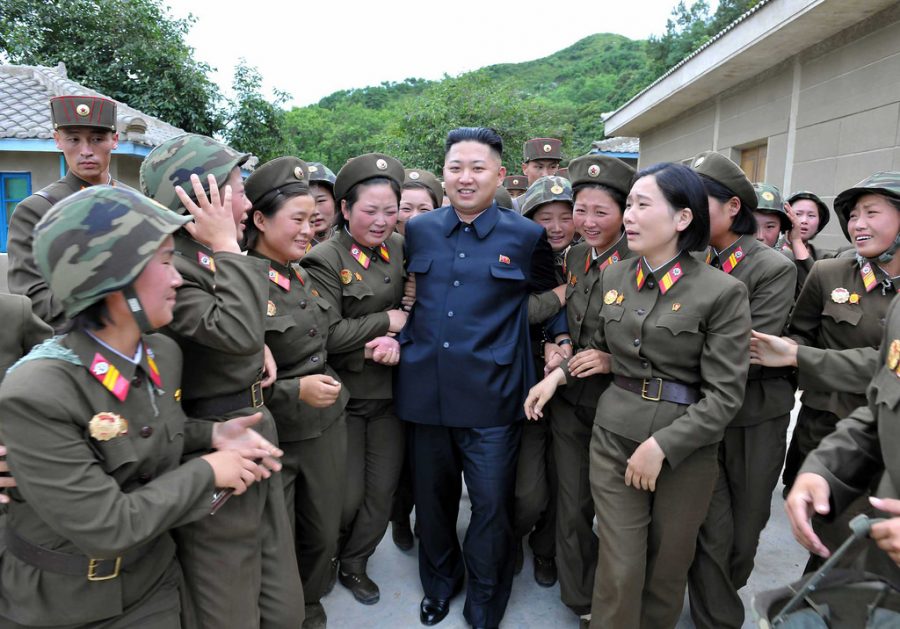Pyongyang’s Provocations
Courtesy of Vietnam Mobiography via Flickr. Kim Jong Un creates diplomatic tensions among Pacific powers with his continuing missile tests.
North Korea’s tensions with the United States and the U.N. has now been at its peak. Following an aggressive missile test launch over Japan, world powers have been pondering the possibility of nuclear war with the third-generation North Korean dictator Kim Jong-un.
On September 3, a ballistic missile from Sunan, the city of North Korea’s international airport, flew over Hokkaido, Japan, and landed in the Pacific Ocean. Its range was moderate in comparison to North Korea’s arsenal, and flew slightly farther than the distance required to hit Guam, a US territory in the Pacific Ocean.
On CNN’s scheduled “State of the Union,” John McCain remarked that Washington D.C. should “make sure that Kim Jong Un knows that if he acts in an aggressive fashion, the price will be extinction.” President Trump responded likewise, foretelling “fire and fury” to be unleashed on North Korea if the threats and tests continue, and followed up with a statement on Twitter that “military solutions are now fully in place, locked and loaded, should North Korea act unwisely.”
The North Korean state run news station announced the missile launch as a “perfect success”, and expressed the country’s plan to become a “strategic nuclear force”. The missile it fired was recorded as a 6.3 magnitude earthquake when it detonated, and was seven times the size of the bomb that destroyed Hiroshima, according to the United States Geological Survey.
On the part of neighboring countries, the fear of being targeted by the so-called “rogue country” has grown. South Korean Defense Minister Song Young-moo suggested a proposal of redeploying U.S. tactical missiles in order to defend the Korean peninsula from the North. In the past, the U.S. harbored nearly 100 nuclear missiles in South Korea, until they were withdrawn by Bush’s Presidential Nuclear Initiatives. “I told him that it would be good for strategic assets to be sent regularly to the Korean Peninsula and that some […] are strongly pushing for tactical nuclear weapons,” Young-moo told a Parliamentary hearing on the subject of North Korea. Polls from Yonhap Television News in South Korea say that a majority of South Koreans, 68 percent, support the redeployment of nuclear missiles.
Military advisors in the U.S. currently advise against the deployment of nuclear missiles in South Korea, as many believe it could worsen the current strained situation. “The thing that most concerns me about redeployment is that it introduces more room for miscalculation or unintended escalation,” said Catherine Dill of the Center for Nonproliferation Studies in an interview with Washington post. Others stand to believe that placing such weapons in South Korea could fuel the anger of its northern neighbor. Dill believes that its long range missiles and bombers that are stationed near the area are an adequate defense measure in comparison to a complete redeployment of nuclear weapons to South Korea. Though the U.S. has refused to arm South Korea with these weapons, it continues to retaliate to the rampant nuclear tests with increased collaborative military drills in South Korea, according to the New York Times.
Japan is also collaborating with South Korea, performing live air military drills over a South Korean military range three days after the missile flew over Japan, in hopes of uniting to deter North Korea. When the missile was fired from North Korea over Japan, the residents of Hokkaido were notified by a “J-alert” on their phones, as well as an email and sirens in the city. President Trump said the United States was “one-hundred percent with Japan” and showed a strong commitment to Tokyo’s defense, Abe told reporters.
China, which constitutes ninety percent of all trade with North Korea, has claimed that they “will never allow chaos and war” Nonetheless, China remains impassive in the situation, claiming that sanctions should not dismantle “legitimate economic trade exchanges with North Korea and the outside world”. Beijing continues to send them resources, with the ever-present threat of a refugee crisis if North Korea ever happens to collapse.






